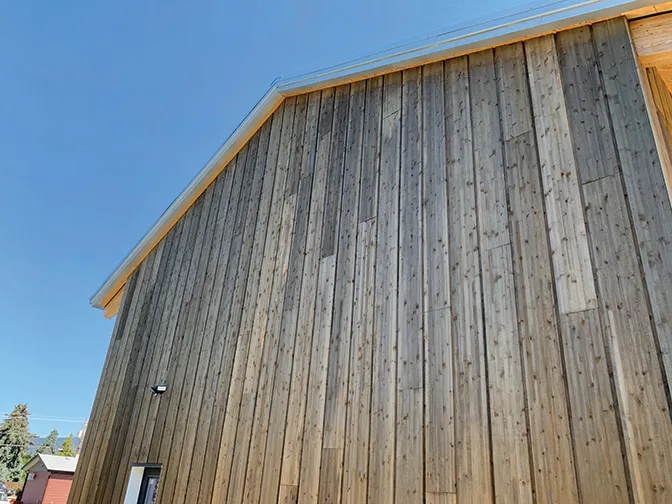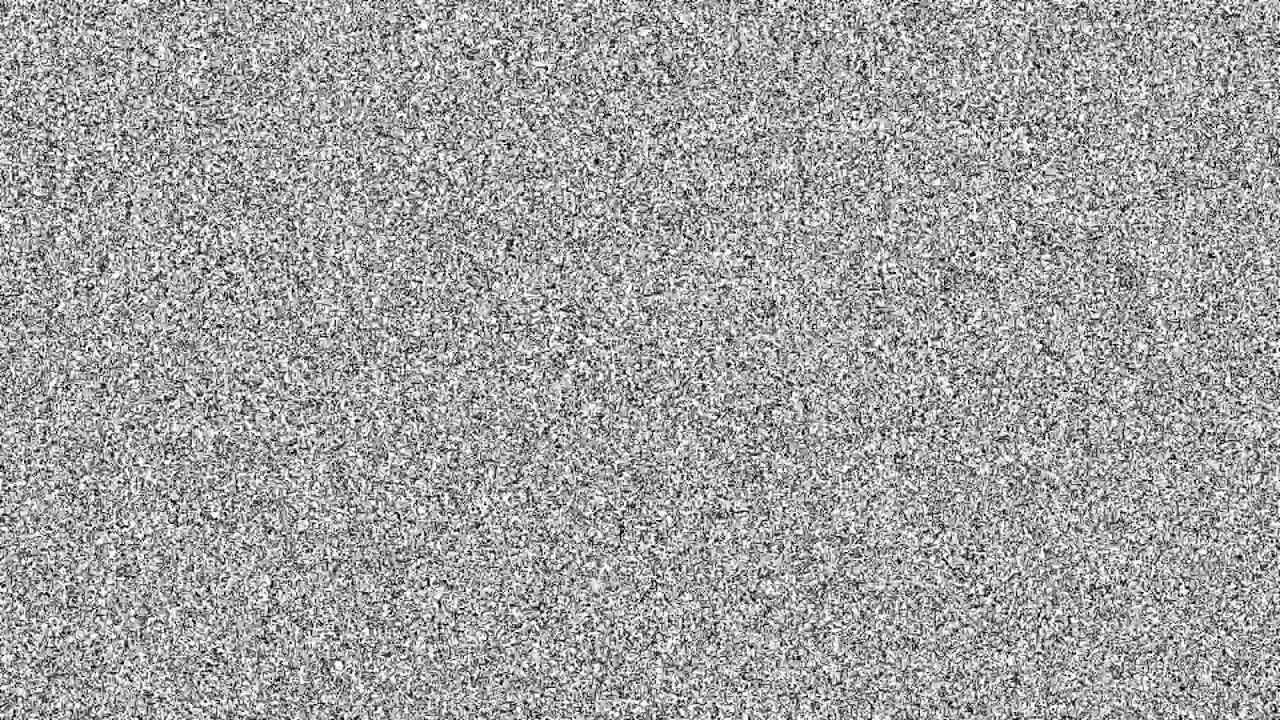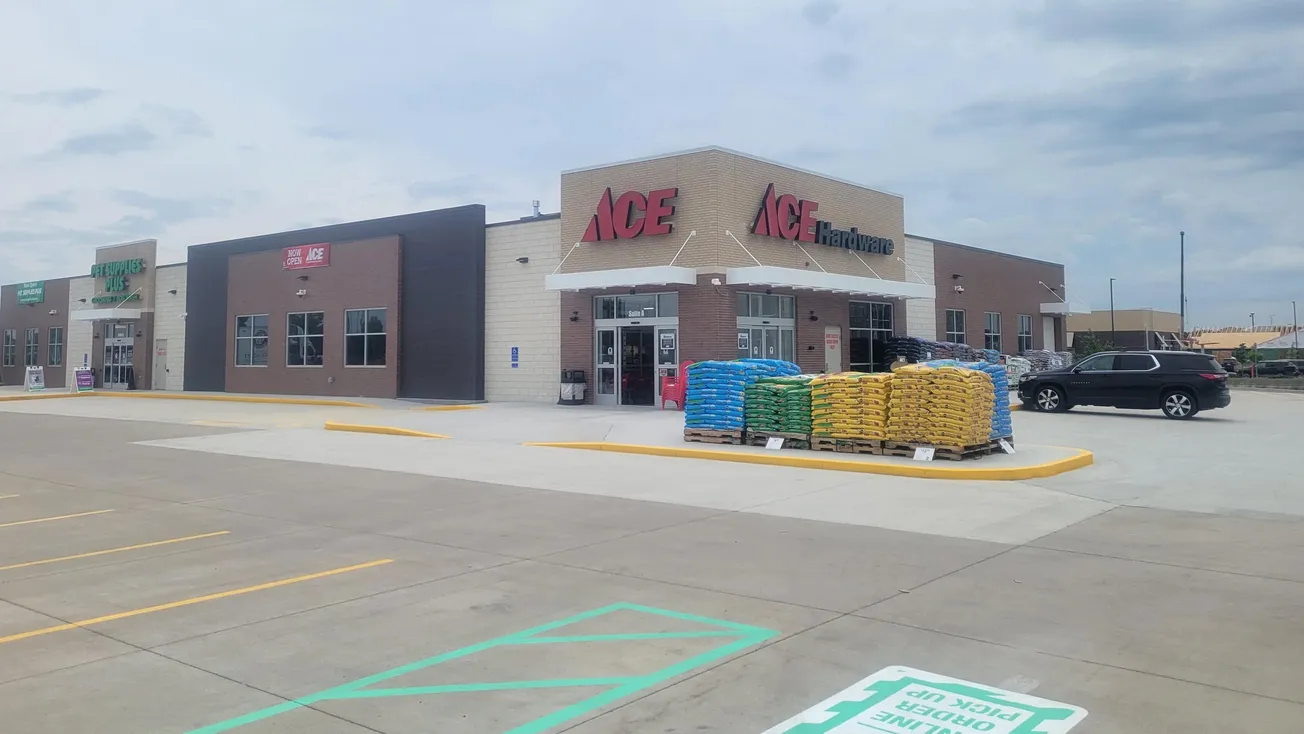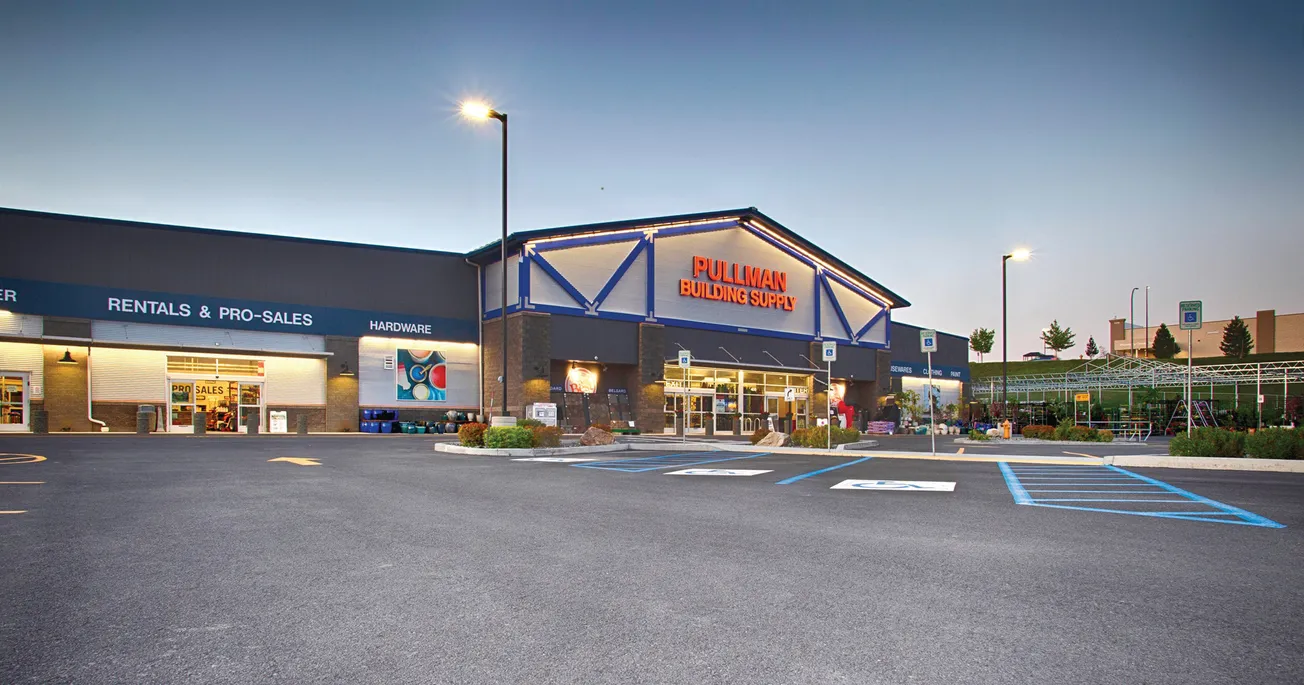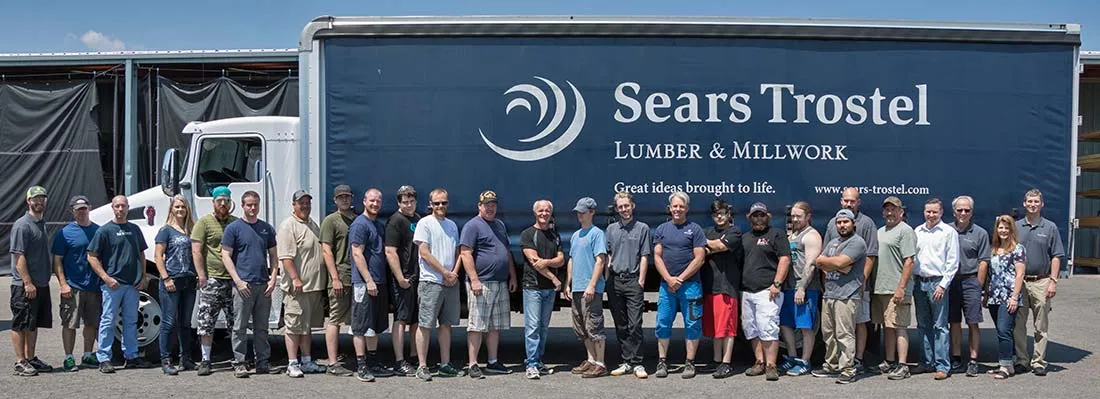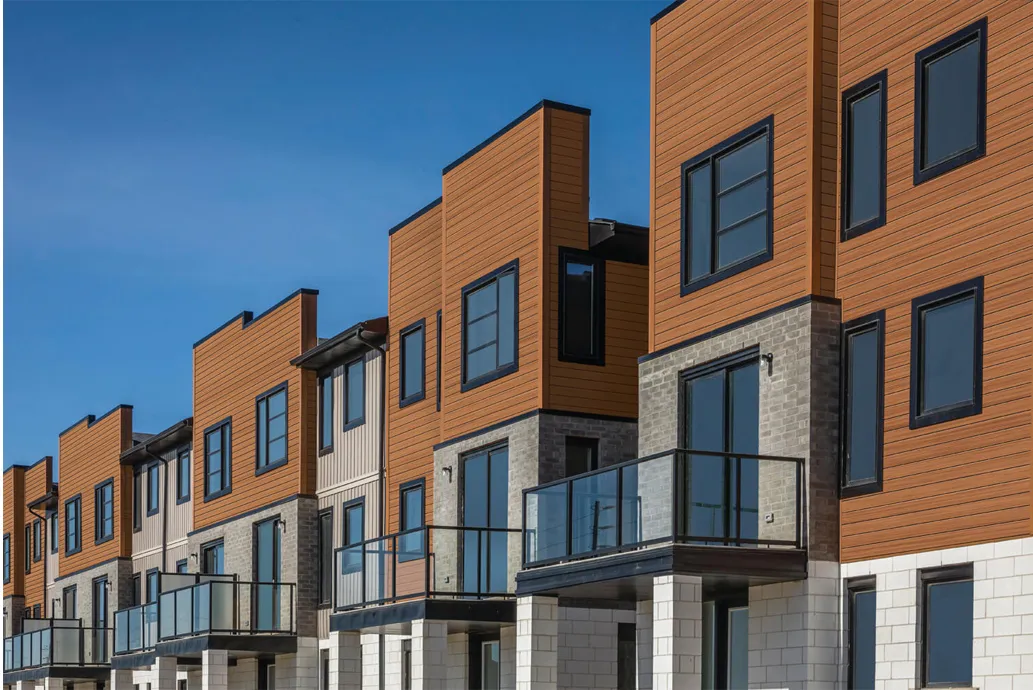Table of Contents
Engineered wood products have been on the market since the introduction of plywood in the1930s, and more recent innovations such as CLT, glulam and laminated veneer lumber that allow for longer spans and taller walls are now competing with construction materials such as steel and concrete, and are seeing an increase in usage in both low and mid-rise buildings.
While engineered wood use is growing in structural applications, engineered western red cedar (WRC) products have been meeting a growing demand in the appearance-product market. Some products have even opened new niche markets in the U.S.
There are three main product categories for engineered western red cedar: engineered clear solid WRC, engineered T&G WRC with a clear veneer overlay, and engineered knotty WRC. All three categories of products are becoming more readily and consistently available and are creating new opportunities for architects, builders and designers.
Engineered clear solid WRC are finger-joined and edge-glued boards that are used mainly for trim, fascia and siding and are manufactured differently than solid stock. These products are ideally suited for exterior cladding. What makes it so appealing to customers is that they are readily available in long lengths, typically 16’ and 20’.
Engineered clear, solid western red cedar is extremely long-lasting and exceptionally stable. As they have color variations and are made up of a number of small pieces, it is usually sold pre-primed and is available either re-sawn or smooth textured. Engineered clear is also an excellent use of clear fiber and maximizes fiber value utilization.
For designs that require the deep, rich look of clear western red cedar, engineered western red cedar T&G products with a clear veneer overlay are now available. Perfect for exterior cladding or soffits, as well as interior wall or ceiling details, these are manufactured with thin pieces of high-quality, clear, vertical grain western red cedar veneers which are applied to a substrate using the same techniques and glue that’s used to manufacture other engineered building materials rated for exterior use.
Like the finger-joined and edge-glued products, clear veneer overlay boards are exceptionally stable, extremely long-lasting and will provide decades of beauty and service. They are available in 1×4 and 1×6 T&G with a variety of edge details. These products have the added benefit of being very environmentally friendly as less clear fiber is required to make them.
What’s more, many of these engineered western red cedar T&G products have been approved for use in soffit applications in Wildland Urban Interface (WUI) areas in California, Oregon and other places that require fire-resistive construction.
The third and newest engineered WRC product is engineered knotty western red cedar. These products are primarily for trim and fascia applications. They are manufactured from smaller pieces of wood into long length material and are kiln dried. The products are available in 16’ and 20’ lengths and in 8”, 10” and 12” widths. They can be nailed, sanded, and sawn just like solid stock.
Engineered knotty western red cedar is also being run to siding patterns like bevel, T&G and shiplap. These products are making in-roads in markets like Texas where generally only unseasoned products have been sold.
With the combination of wood growing in popularity due to design trends embracing natural materials, growing awareness of environmental issues and wood’s role in mitigating climate change, as well as studies linking health benefits to natural materials like wood, engineered WRC products are filling a growing demand.
As a testament to the products’ popularity, the Western Red Cedar Lumber Association, which represents WRC manufacturers, distributors and retailers in North America, is fully behind the trend. “Many of our members produce really attractive, quality engineered products,” said Brad Kirkbride, managing director of the WRCLA. “They’ve definitely filled a void and we’re seeing more and more of these products in high-end designs. We’re going to see more of these products at the retail level, and they’ll change how the material is used in both residential and commercial applications.”

